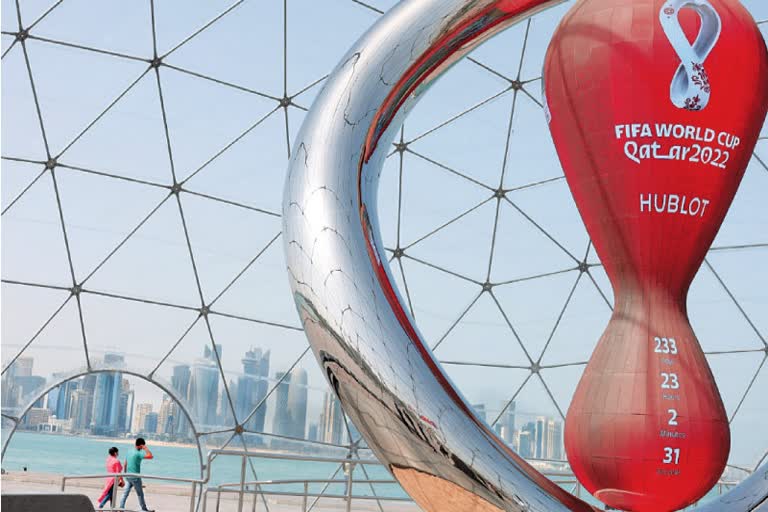Doha:On the Instagram accounts of fashion models and superstars last month, the sheikhdom of Qatar looked like one glittering party. High-heeled designers descended on exhibition openings and fashion shows in downtown Doha. Celebrities, including a prominent gay rights campaigner, snapped selfies on a pulsing dance floor.
As-salaam 'alykum Doha! Dutch model Marpessa Hennink proclaimed on Instagram, using the traditional Muslim salutation. The backlash was swift. Qataris went online to vent their anger about what they called a dangerous and depraved revelry, saying it threatened Qatar's traditional values ahead of the 2022 FIFA World Cup. The Arabic hashtag, Stop the Destruction of Our Values, trended for days.
Read: Brazil's full World Cup team in training as Marquinhos joins
The episode underscores the tensions tearing at Qatar, a conservative Muslim emirate that restricts alcohol, bans drugs and suppresses free speech, as it prepares to welcome possibly rowdy crowds for the first World Cup in the Middle East. Our religion and customs prohibit indecent clothing and behavior, Moheba Al Kheer, a Qatari citizen, said of the avant-garde artists and flamboyant models who mingled with Qatari socialites in late October.
It's normal for us to worry when we see these kinds of people." World Cup organizers say everyone is welcome during the tournament. Already, foreigners outnumber citizens 10 to one in Qatar. Some Qataris are liberal and open to mixing with foreigners. Many are thrilled about the tournament. But human rights groups have raised concerns over how police will deal with foreign fans' violations of the Islamic laws criminalizing public drunkenness, sex outside of marriage and homosexuality.
Qatar, a tiny Persian Gulf country that once was a dust-blown pearling port, transformed at almost warp-speed into an ultra-modern hub following its 1990s natural gas boom. Expats, including Western consultants and engineers and low-paid South Asian construction workers and cleaners, poured into the country.
Glass-and-steel skyscrapers, luxury hotels and massive malls soon sprung up in the desert. In an effort to diversify away from a carbon-based economy, Qatar's ruling family bought up stakes in things ranging from global finance and technology to the French soccer club Paris Saint-Germain and London real estate.
The ruling emir's sister, Sheikha Al Mayassa Hamad bin Khalifa Al Thani, became one of the world's most important art buyers. His mother, Sheikha Mozah bint Nasser Al-Missned, became a global style icon and bought several luxury brands, including Valentino.
But even as Qatar, among the world's wealthiest countries per capita, looked to the West for inspiration, it faced pressure from within to stay true to its Islamic heritage and Bedouin roots. Qatar's most powerful clan originates from the Arabian Peninsula's landlocked interior, where the ultraconservative form of Sunni Islam known as Wahhabism was born.
Qatari rulers treaded the tightrope between placating its conservative citizens and tribes and shoring up soft power as a major global player. Doha's religious discourse to its citizens is very different from its liberal discourse to the West, said 38-year-old Qatari Mohammed al-Kuwari. It cannot always succeed at both."
